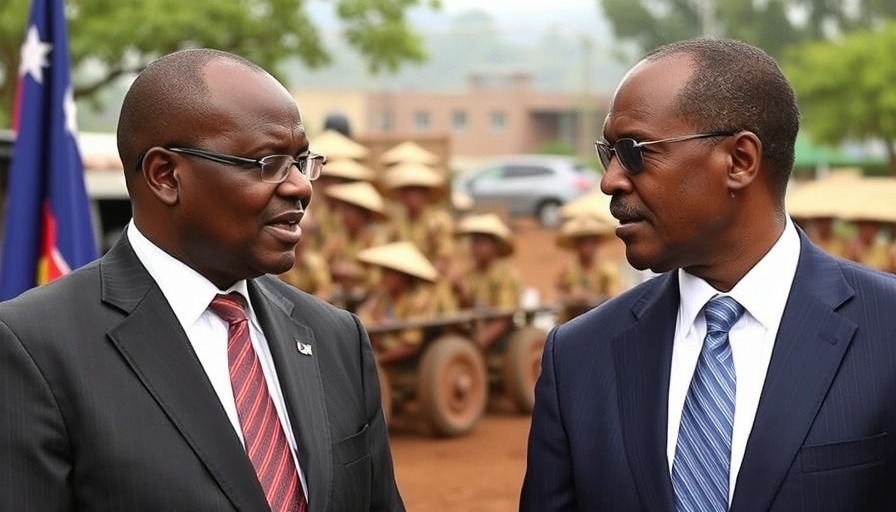
Understanding the Reemerging Crisis in Congo
The Democratic Republic of Congo (DRC) finds itself in a precarious situation as recent diplomatic efforts led by Qatar's Emir, Sheikh Tamim bin Hamad Al Thani, appear to have faltered, particularly as reports of renewed territorial gains by M23 rebels dominate the headlines. Despite a ceasefire agreement, the fall of the strategic town of Walikale in North Kivu raises questions about the effectiveness of this diplomatic gesture and reinforces the ongoing cycle of conflict in the region.
The Power Dynamics at Play
Recent interactions between Rwandan President Paul Kagame and DRC's Felix Tshisekedi showcased a rare engagement between these longstanding adversaries. However, the backdrop of U.S. pressure, hinting at potential sanctions, indicates the complexity of foreign influence in African conflicts. The Emir's involvement could signal a shift in how external parties approach political negotiations in the region, emphasizing the need for constructive dialogue.
Military Gains vs. Diplomatic Talks
The M23 rebels, under the political wing of Alliance Fleuve Congo (AFC), have outright dismissed the relevance of the Doha meeting, stressing that until their issues are directly addressed, they remain prepared to continue military actions. This situation highlights a crucial dilemma: military conquests often undermine peace talks, and as Richard Moncrieff from the Crisis Group suggests, without a sincere commitment to dialogue from both sides, the cycle of violence is likely to persist.
Regional Reactions and Future Insight
Angola's Foreign Minister, Tete Antonio, has echoed sentiments of African self-determination in conflict resolution, emphasizing that solutions must arise from within the continent. As the DRC crisis unfolds, it raises critical questions about the efficacy of foreign-led initiatives in resolving internal disputes and the future role of African nations in their own governance.
Implications for Business Leaders and Policymakers
For business leaders and policymakers, understanding the complexities of such geopolitical dynamics is paramount. As the DRC and Rwanda's relationship teeters on the edge, implications for trade and investment in the region could be significant. The economic potential of the DRC, rich in natural resources, hinges on stability; hence, the role of diplomatic efforts cannot be understated in shaping not only regional security but also economic prospects.
Conclusion: The Call for Comprehensive Solutions
As the situation continues to evolve in the Great Lakes region, stakeholders will need to advocate for comprehensive solutions that go beyond temporary ceasefires. Long-term peace will require commitment from all parties involved and a reevaluation of the systemic issues contributing to this ongoing crisis. Monitoring these developments offers critical insights into Africa's geopolitical landscape and its broader implications for global trade and alliances.
 Add Row
Add Row  Add
Add 


 Add Row
Add Row  Add
Add 

Write A Comment